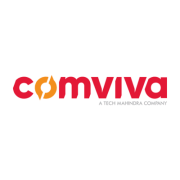Partner Relationship Management platforms are designed to improve the collaboration between businesses and their partners. These solutions streamline processes such as communication, sales, and marketing efforts, enhancing partner engagement and optimizing business outcomes.
Developed to assist companies in managing their complex partner ecosystems, Partner Relationship Management solutions provide a framework for supporting and optimizing partner interactions. By offering centralized tools for communication, resource sharing, and performance tracking, these systems enable organizations to improve efficiency and drive growth. As user experiences suggest, navigating the functionalities of these platforms can significantly enhance the management of partner relationships and related activities.
What are the critical features of this solution?In specific industries such as technology and manufacturing, PRM platforms facilitate the management of intricate partner networks by automating many engaging aspects. These solutions help industries distribute leads, track partner achievements, and access a comprehensive view of channel operations.
Helping organizations manage their partner relationships more effectively, Partner Relationship Management solutions assist businesses in better aligning their strategies, improving communication with partners, and ultimately driving mutual success in a competitive market environment.






























































Partner management is important because it can ensure channel managers avoid duplication within the company and streamline all of their partner sales processes.
Many businesses rely on partner companies to sell their products on their behalf as part of a channel strategy, in addition to or instead of using a direct distribution channel. These indirect channels include: value-added resellers, merchants, consultants, managed service providers, systems integrators, original equipment manufacturers, or independent software vendors.
A company can use partner relationship management to create a successful business by making use of the automation of critical processes, like lead assignment, self-service portal access, and training programs. Partner relationship management enables you to manage both your relationships with partners and their relationships with you while effectively assisting businesses in streamlining their overall operation. Partner relationship management is designed to hasten the uptake, interest, and sales of your products. Because partners can more efficiently serve all clients, the end result is happier partners who sell more products.
PRMs can sometimes be integrated with CRMs, but they are most commonly separate software solutions. CRM (customer relationship management) software enables businesses to keep track of communications between a company and its prospective and current clients. All pertinent customer data, including contact details, history, and summaries of transactions, are stored as a living record in the CRM database.
CRM software is not intended for managing your partner ecosystem. You could say PRM is a specialized form of CRM, focused on optimizing partner channel sales. PRM software manages a company's relationships with its indirect sales teams.
In short, PRM software is concentrated on getting a partner to sell on your behalf, as opposed to CRM software, which is designed to get an end customer to make a purchase from you. You may need both tools if your company uses both direct and indirect sales channels in a hybrid selling program.
A partner relationship management (PRM) system is a class of technologies used by businesses to streamline, improve, amplify, and reinforce business operations with their indirect partners in order to achieve mutual growth. PRM systems give users visibility into and control over complex channel organizations. Each partner has access to a private site through the use of the software, where they can access documents, marketing materials, market development funds (MDF), opportunities, and business deals.
Additionally, partner relationship management systems provide automated, multitiered operation methods that will reduce resource investments and boost sales opportunities. More sales prospects will result in a larger market share and a higher level of satisfaction among the partner network.
PRM systems are becoming a crucial component of effective channel management and partner programs, being used in everything from joint business planning and market development fund administration to onboarding and training channel partners.
PRM solutions streamline communications and data sharing between your company and its partners. By centralizing information and automating workflows, you ensure that all parties have access to consistent data, which facilitates a more collaborative environment. This can lead to more effective marketing campaigns, better alignment with sales strategies, and enhanced problem-solving capabilities. As a result, you can expect improved partner engagement, loyalty, and ultimately increased revenue.
What are the key features to look for in a PRM solution?When selecting a PRM solution, focus on features such as automated onboarding processes, training and certification programs, centralized partner communications, and robust reporting tools. Integration capabilities with CRM systems can also enhance efficiency. Additionally, a customizable portal where partners can access resources easily is invaluable for maintaining a flexible and responsive partner ecosystem.
Why is lead management important in PRM solutions?Effective lead management in PRM solutions empowers you to distribute leads timely and accurately among partners. This ensures no lead is overlooked and that each opportunity is matched with the right partner, enhancing conversion rates. By tracking and analyzing the performance of leads through the lifecycle, you can gain insights into sales funnel effectiveness and make informed decisions to optimize partnership strategies.
How do PRM solutions improve partner training and enablement?PRM solutions offer robust training modules and certification processes that help partners quickly learn and adapt to your products and services. By providing online training materials, webinars, and interactive workshops within the PRM system, you can streamline the education process. This ensures that partners are equipped with the necessary knowledge to represent your brand effectively, ultimately leading to improved sales performance and customer satisfaction.
What role does analytics play in a PRM solution?Analytics within PRM solutions provide valuable insights into partner performance and channel success. By monitoring key performance indicators (KPIs), you can identify high-performing partners and areas for improvement. The data-driven approach allows for strategic adjustments in partnership management, optimizing channel strategies and driving better ROI. This insight helps in developing targeted incentives and support programs, ensuring you nurture and retain valuable partners.